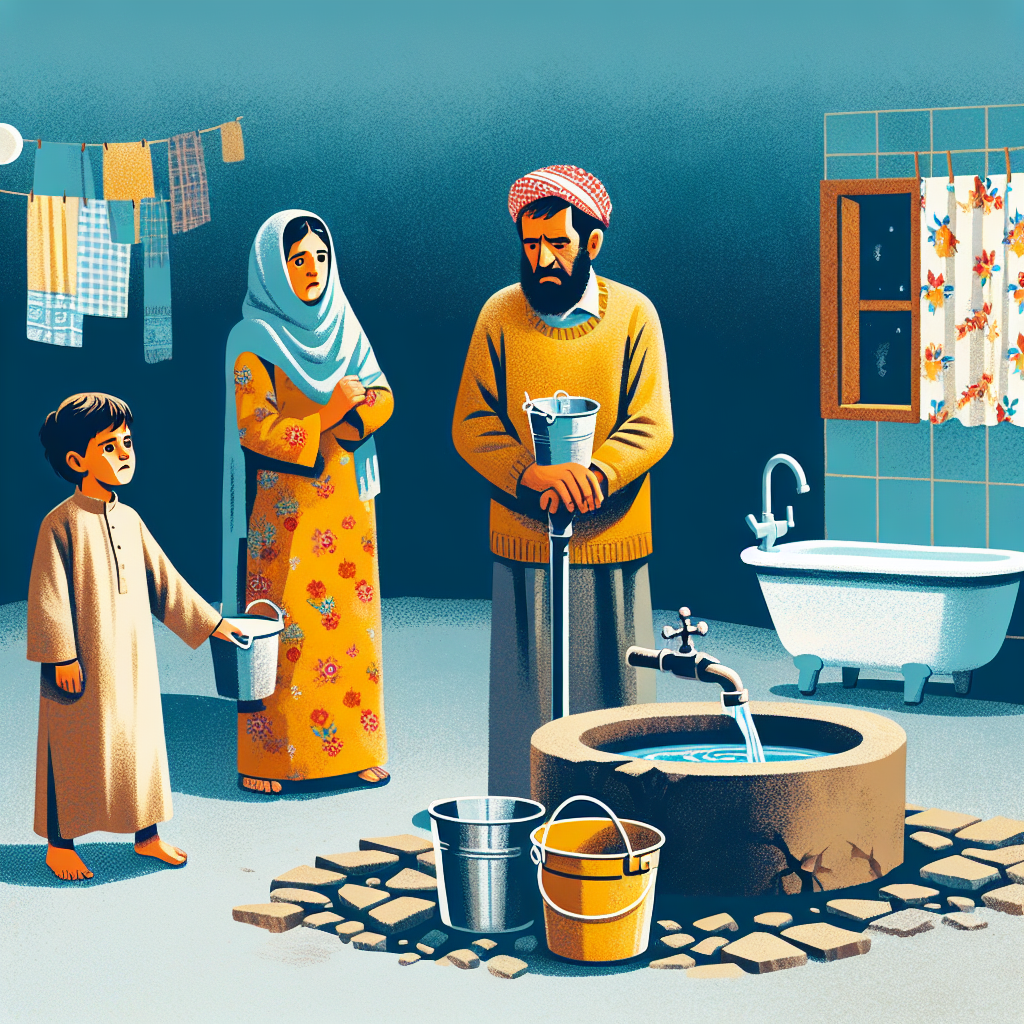Coping with Scarcity: Northern Gaza’s Water Crisis and Infrequent Bathing
Coping with Scarcity: Northern Gaza’s Water Crisis and Infrequent Bathing
Introduction
The ongoing water crisis in Northern Gaza has reached critical levels, severely impacting daily life and hygiene practices. This summary explores the challenges faced by residents, the causes of the crisis, and the coping mechanisms adopted by the community.
Understanding the Crisis
Water scarcity in Northern Gaza is a multifaceted issue, driven by a combination of environmental, political, and infrastructural factors.
- Environmental Factors: Limited rainfall and over-extraction of groundwater have depleted natural water resources.
- Political Challenges: Blockades and conflicts have restricted access to essential water infrastructure and resources.
- Infrastructural Issues: Aging and damaged water systems struggle to meet the population’s needs.
Impact on Daily Life
The water crisis has forced residents to adapt their daily routines, particularly concerning personal hygiene and bathing practices.
- Infrequent Bathing: Many residents are compelled to bathe less frequently, often resorting to sponge baths to conserve water.
- Health Concerns: Reduced hygiene practices increase the risk of skin infections and other health issues.
- Psychological Stress: The constant struggle for water adds to the mental burden of living in a conflict zone.
Community Coping Mechanisms
Despite the challenges, the community has developed innovative strategies to manage the water crisis.
- Water Conservation: Residents employ techniques such as reusing greywater for non-potable purposes.
- Community Support: Neighbors often share resources and collaborate to secure water supplies.
- Advocacy and Awareness: Local organizations work to raise awareness and advocate for improved water policies.
Conclusion
The water crisis in Northern Gaza is a pressing issue that affects every aspect of life. While the community demonstrates resilience through innovative coping strategies, long-term solutions require concerted efforts from local authorities and international partners. Addressing the root causes of the crisis is essential to ensure sustainable access to clean water and improve the quality of life for Gaza’s residents.






































